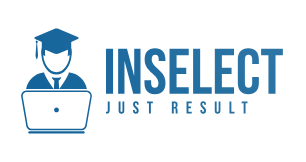The Next Revolution in Online Learning: Beyond Flexibility to True Accessibility
After 20+ years in the online learning industry, I've observed something that's been bothering me: we're still having essentially the same conversations about online education that we were having two decades ago.

The Stagnant Narrative
Open LinkedIn on any given day and you'll see posts celebrating the "revolutionary" aspects of online learning:
These weren't revolutionary insights when I entered the field in the early 2000s. They were already the foundation of the industry's value proposition. Don't misunderstand me — accessibility and flexibility ARE valuable. But they should be our starting point, not our finish line.
The Missing Economic Revolution
Online learning was originally meant to democratize education not just by removing geographical barriers, but by making quality education more financially accessible. The promise was clear: without the overhead of maintaining physical campuses and expensive facilities, online education could be delivered at a fraction of the cost.
Yet this financial revolution never fully materialized. Why? Because we never solved the fundamental economics of education delivery. Even as we digitized content and delivery methods, the cost structure remained largely unchanged because the most significant expense in education has always been human capital: the professors, instructors, and teaching assistants who:
These essential human interactions have kept online education costs stubbornly high, limiting its potential to truly democratize access to quality education.
The AI-Enabled Economic
Shift We're now at a genuine inflection point. Advanced AI capabilities can fundamentally reimagine the division of labor in education, addressing the economic equation that has constrained online learning for decades. Here's how AI can transform the economic model:
What AI Can Handle:
By automating these routine but time-intensive tasks, institutions can dramatically reduce the per-student cost of education delivery without sacrificing quality.
What Remains Uniquely Human:
This division creates a new economic reality: human educators can focus their limited and valuable time on high-impact interactions while AI handles the scalable components.
The True Revolution: Accessible Excellence
The result isn't just more efficient education—it's the potential for truly affordable, high-quality learning experiences. Imagine world-class education available at a fraction of today's costs, making it accessible to populations previously excluded by financial barriers. This isn't about replacing educators. It's about amplifying their impact while removing the economic constraints that have limited who can benefit from their expertise.
The next revolution in online learning isn't about WHERE or WHEN we learn. It's about fundamentally restructuring WHO (or what) delivers different components of the learning experience to make excellence financially accessible to all. Looking Forward As an industry, we need to move beyond recycling the same conversations about flexibility and basic accessibility. The technology exists today to reinvent the economic foundation of education itself.
The question is: are we bold enough to embrace this shift? Or will we still be having the same conversations about "learn from anywhere!" twenty years from now? What do you think? Is your organization ready to move beyond the fundamentals and create truly accessible educational excellence?
Open LinkedIn on any given day and you'll see posts celebrating the "revolutionary" aspects of online learning:
- Study from anywhere!
- Learn at your own pace!
- Access course materials 24/7!
These weren't revolutionary insights when I entered the field in the early 2000s. They were already the foundation of the industry's value proposition. Don't misunderstand me — accessibility and flexibility ARE valuable. But they should be our starting point, not our finish line.
The Missing Economic Revolution
Online learning was originally meant to democratize education not just by removing geographical barriers, but by making quality education more financially accessible. The promise was clear: without the overhead of maintaining physical campuses and expensive facilities, online education could be delivered at a fraction of the cost.
Yet this financial revolution never fully materialized. Why? Because we never solved the fundamental economics of education delivery. Even as we digitized content and delivery methods, the cost structure remained largely unchanged because the most significant expense in education has always been human capital: the professors, instructors, and teaching assistants who:
- Design and update course materials
- Evaluate assignments and provide feedback
- Answer student questions
- Conduct assessments
- Provide personalized guidance
These essential human interactions have kept online education costs stubbornly high, limiting its potential to truly democratize access to quality education.
The AI-Enabled Economic
Shift We're now at a genuine inflection point. Advanced AI capabilities can fundamentally reimagine the division of labor in education, addressing the economic equation that has constrained online learning for decades. Here's how AI can transform the economic model:
What AI Can Handle:
- Assessing standard assignments with consistent, objective feedback
- Providing personalized exam preparation guidance
- Delivering adaptive content based on individual performance
- Answering routine questions at scale
- Simulating real-world scenarios for practice
- Tracking and analyzing student progress patterns
By automating these routine but time-intensive tasks, institutions can dramatically reduce the per-student cost of education delivery without sacrificing quality.
What Remains Uniquely Human:
- Creative problem-solving facilitation
- Nuanced feedback on complex work
- Sharing context-rich professional insights
- Mentorship that shapes career trajectories
- Fostering meaningful peer collaboration
- Cultivating critical thinking beyond factual knowledge
This division creates a new economic reality: human educators can focus their limited and valuable time on high-impact interactions while AI handles the scalable components.
The True Revolution: Accessible Excellence
The result isn't just more efficient education—it's the potential for truly affordable, high-quality learning experiences. Imagine world-class education available at a fraction of today's costs, making it accessible to populations previously excluded by financial barriers. This isn't about replacing educators. It's about amplifying their impact while removing the economic constraints that have limited who can benefit from their expertise.
The next revolution in online learning isn't about WHERE or WHEN we learn. It's about fundamentally restructuring WHO (or what) delivers different components of the learning experience to make excellence financially accessible to all. Looking Forward As an industry, we need to move beyond recycling the same conversations about flexibility and basic accessibility. The technology exists today to reinvent the economic foundation of education itself.
The question is: are we bold enough to embrace this shift? Or will we still be having the same conversations about "learn from anywhere!" twenty years from now? What do you think? Is your organization ready to move beyond the fundamentals and create truly accessible educational excellence?
